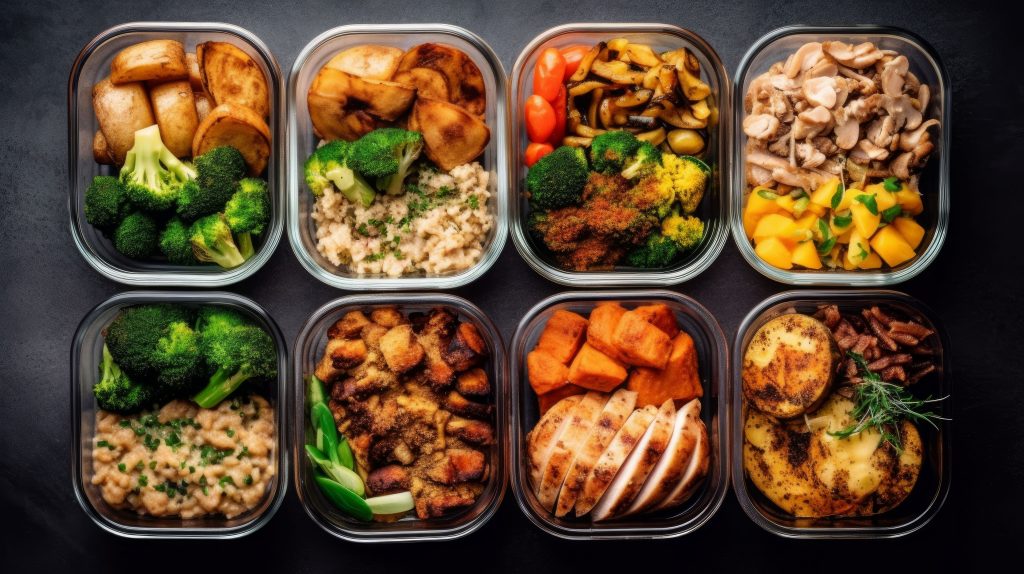Are you ready to take charge of your health and conquer the challenges of managing diabetes? Understanding how to create a meal plan that aligns with your blood sugar levels is a crucial step towards achieving optimal wellness. By tailoring your meals to support stable blood sugar, you can enhance your energy levels, mood, and overall quality of life. Let’s dive into the world of personalized meal planning for diabetes and discover how it can empower you on your journey to better health!
Understanding Blood Sugar Levels
Understanding your blood sugar levels is key to managing diabetes effectively. When you eat, your body breaks down carbohydrates into glucose, which enters the bloodstream and raises blood sugar levels. Insulin, a hormone produced by the pancreas, helps regulate these levels by allowing cells to absorb glucose for energy. In diabetes, this process is disrupted either due to inadequate insulin production (Type 1) or cells becoming resistant to insulin (Type 2). Monitoring your blood sugar through regular testing provides valuable insights into how different foods and activities affect your levels throughout the day. By understanding these fluctuations, you can make informed decisions about your diet and lifestyle to maintain stable blood sugar control.
The Importance of a Meal Plan for Managing Blood Sugar
Managing blood sugar levels is crucial for overall health, especially for individuals with diabetes. One of the key tools in effectively managing blood sugar is creating a personalized meal plan. A well-thought-out meal plan can help stabilize blood sugar levels throughout the day, reducing spikes and crashes that can impact energy and wellbeing.
By incorporating balanced meals into your daily routine, you can better control your blood sugar fluctuations. Consistency in eating habits plays a significant role in maintaining stable glucose levels over time. A structured meal plan not only helps regulate blood sugar but also promotes healthier eating patterns and overall wellness.
In addition to monitoring carbohydrate intake, understanding how different foods affect your body is essential when developing a meal plan tailored to your specific needs. Working closely with healthcare professionals or nutritionists can provide valuable insights and guidance on crafting a sustainable and effective meal plan for managing blood sugar levels effectively.
Factors to Consider When Creating a Meal Plan Based on Blood Sugar
When creating a meal plan tailored to your blood sugar levels, it’s crucial to consider the glycemic index of foods. Foods with a low glycemic index release glucose slowly, helping maintain stable blood sugar levels. Incorporating whole grains, lean proteins, and healthy fats can help balance your meals.
Portion control plays a significant role in managing blood sugar. Eating consistent portion sizes at regular intervals throughout the day can prevent spikes or drops in blood glucose levels. It’s essential to listen to your body’s hunger cues and not skip meals.
Fiber-rich foods are beneficial for regulating blood sugar as they slow down digestion and absorption of carbohydrates. Including fruits, vegetables, legumes, and whole grains in your meal plan can provide a steady release of energy without causing sudden spikes in blood sugar.
Furthermore, paying attention to how different foods affect your individual blood sugar response is key. Keeping track of your meals and monitoring how they impact your glucose levels can help you make informed choices when planning future meals.
Sample Meals for Different Blood Sugar Levels
When it comes to managing blood sugar levels through meal planning, it’s essential to consider the impact of different foods on your body. For individuals with diabetes, crafting meals that promote stable blood sugar is key.
For those looking to keep their blood sugar levels steady throughout the day, a balanced breakfast could include scrambled eggs with spinach and whole-grain toast. This combination provides protein, fiber, and complex carbohydrates to prevent spikes in glucose.
Lunch options for maintaining healthy blood sugar might consist of grilled chicken salad with quinoa and vegetables. This meal offers a mix of lean protein, low-glycemic carbs, and vitamins for sustained energy without causing drastic blood sugar fluctuations.
Dinner choices could involve baked salmon with roasted sweet potatoes and asparagus. Incorporating omega-3 fatty acids from fish along with nutrient-rich veggies can help regulate blood sugar levels effectively.
Tips for Making a Successful Meal Plan
Creating a successful meal plan that aligns with your blood sugar levels can seem daunting, but with some simple tips, you can make it work seamlessly. Start by incorporating a variety of colorful fruits and vegetables into your meals to ensure you’re getting a good mix of nutrients. Additionally, opt for whole grains like quinoa or brown rice over refined grains to help stabilize blood sugar levels.
Portion control is key when managing diabetes through diet. Be mindful of serving sizes and consider using smaller plates to avoid overeating. Planning ahead and prepping meals in advance can save time and prevent impulsive food choices when hunger strikes.
Don’t forget the importance of staying hydrated throughout the day. Opt for water or unsweetened beverages to keep your body functioning optimally. Don’t be afraid to seek support from healthcare professionals or registered dietitians who specialize in diabetes management for personalized guidance on creating a meal plan tailored to your needs.
The Role of Exercise in Managing Blood Sugar and Meal Planning
Exercise plays a crucial role in managing blood sugar levels for individuals with diabetes. When combined with a personalized meal plan, regular physical activity can help improve insulin sensitivity and lower blood glucose levels.
Engaging in activities like brisk walking, strength training, or yoga can have a positive impact on blood sugar control. Exercise helps the body use insulin more effectively, allowing glucose to be absorbed by muscles for energy instead of building up in the bloodstream.
Pairing exercise with strategic meal planning can further optimize blood sugar management. By coordinating food intake with workout times, individuals can better regulate their glucose levels throughout the day.
Consulting with a healthcare provider or a dietitian to develop an integrated plan that incorporates both nutrition and exercise tailored to individual needs is key for long-term success in managing diabetes through lifestyle modifications.
Conclusion: Taking Control of Your Health with a Personalized Meal Plan
Taking control of your health through a personalized meal plan tailored to your blood sugar levels can significantly impact your overall well-being. By understanding how different foods affect your glucose levels and incorporating this knowledge into a structured meal plan, you can manage diabetes more effectively.
Remember, consistency is key when it comes to maintaining stable blood sugar levels. Stay committed to following your meal plan, making adjustments as needed based on monitoring results. With the right approach to nutrition and exercise, you can take proactive steps towards better managing diabetes and enjoying a healthier lifestyle.
Empower yourself with the tools and knowledge needed to make informed choices about what you eat. Your personalized meal plan should not feel restrictive but rather empowering, supporting both your physical health and emotional well-being. Start today by creating a meal plan that works for you and reap the benefits of improved blood sugar control and overall health in the long run.



